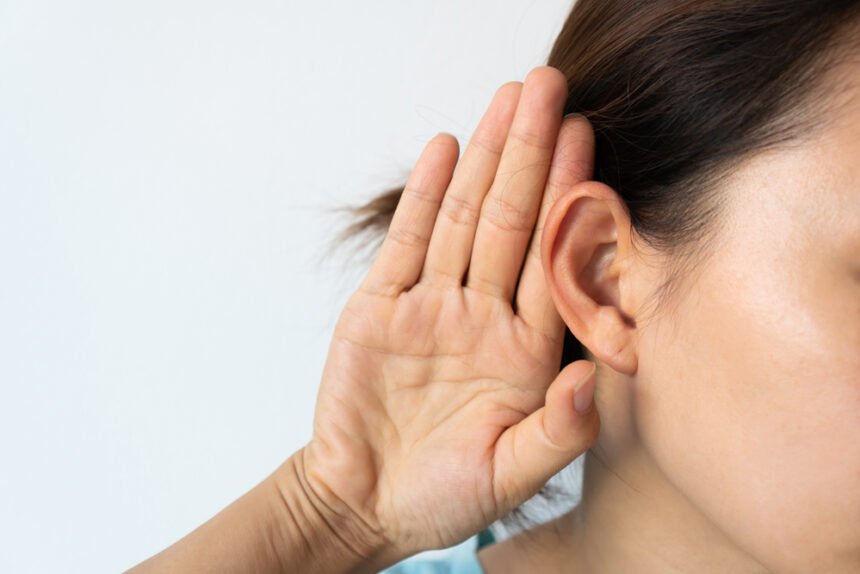Your hearing is a gift that allows you to enjoy conversation, music and entertainment. However, it also helps you stay safe and confident during your daily life. Hearing loss makes it difficult to interpret sounds including conversation and noise that can warn us when we are in danger. The brain is misled when it lacks audibility which distorts how we receive information. When living with hearing loss it becomes difficult to decipher sounds, dangers and interactions in our lives. That’s why it is so important for us to enjoy perfect hearing. Here’s how hearing loss can affect your day-to-day life.
Types of Hearing Loss
There are four types of hearing loss:
- Conductive Hearing Loss: This is caused when sound can’t get through the outer or middle ear and can often be treated with medicine or might require surgery.
- Sensorineural Hearing Loss: In this case, there is an issue with the way the inner ear or hearing nerves work.
- Mixed Hearing Loss: This can be a combination of issues with both conductive and sensorineural hearing loss.
- Auditory Neuropathy Spectrum Disorder: This happens when there is damage to either the inner ear or the hearing nerve which changes the way the brain understands sounds.
A hearing test will determine what type of hearing loss you are experiencing so you can find the right solution to help restore hearing function.
Causes of Hearing Loss
If you experience hearing loss, there could be many reasons, such as:
- Ageing: One in three people will suffer some degree of hearing loss or “Presbycusis” by the age of 65.
- Head injury: In some cases, traumatic brain injury can cause a hole in the eardrum or damage the middle ear leading to hearing loss.
- Very loud noise: Exposure to loud noise either suddenly or over time can cause permanent hearing loss.
- Tumours: Acoustic neuroma is one example of a type of tumour that causes hearing loss, ringing in the ear or a feeling your ears are plugged.
- Genetics: You can have hereditary or genetic factors that increase the risk of hearing loss. If someone in your family experiences age-related hearing loss, this can increase your risk. Between 35% to 55% of age-related hearing loss is due to genetics.
Impact of Hearing Loss on Daily Life and Work Life
Hearing loss can negatively impact your life in the following ways:
- Career: When you have difficulty hearing it affects how well you can contribute at work. You can’t hear discussions or understand presentations which reduces your ability to communicate and understand processes and assignments. You might also appear rude if people feel you are ignoring them when in fact you simply don’t realize you are being addressed. Group attitude and teamwork impact your success and both of these things can suffer when you have hearing loss. In some situations, hearing loss can place you in life-or-death situations at work such as on a construction site where dangerous equipment is being used.
- Emotional: Hearing loss interferes with our ability to communicate. It can cause self-esteem issues as it can be embarrassing to admit we are losing our ability to hear. This can lead to isolation as we can no longer participate in vibrant conversations and instead fade into the background and seem disinterested or aloof. As you separate yourself from social situations you suffer emotional stress, depression and anxiety. Many people are depressed and don’t understand they might actually be experiencing signs of grief for the loss of their hearing and the life they once enjoyed.
Treatments for Hearing Loss to Improve Everyday Life
The good news is that there are many ways to help improve your hearing so you can start enjoying life again. The most common treatments include:
- Hearing Aids: Hearing aids have come a long way in the past decade thanks to technological advancements. You can now choose between either analogue or digital hearing aids. Analogue hearing aids work like a speaker to amplify sounds so you can hear more clearly. They can be adjusted based on your environment such as small rooms, being outdoors or in a noisy crowd. Digital hearing aids are more responsive adjusting automatically so you can increase hearing as needed. There are different models available in various sizes and fits including those you wear behind the ear, open-in-fit models worn behind the ear with a device in the ear canal, and those worn in the ear.
- Implanted Hearing Devices: These devices are surgically implanted to improve how sound vibrations are received in the inner ear. You can have middle ear implants attached to the bones of your middle ear for sensorineural hearing loss or bone-anchored hearing aids which work for a number of scenarios including single-sided deafness, conductive or mixed hearing loss.
- Cochlear Implants: Cochlear implants are designed for those with severe damage to the inner ear. They turn sound into electrical signals which are sent to the “cochlea” so the signals are sent to the brain and the sound can be heard.
Hearing Loss Solutions for Quality of Life
With so many hearing loss solutions available, you have options that can greatly improve your quality of life. You can regain your confidence and participate in social, personal and work situations. With the right hearing device, you can begin to catch the sounds you’ve been missing and enjoy improved self-esteem as you feel more like yourself. Your communication will improve, and you will not have to suffer the negative emotional effects of isolation. You can also avoid the problem of tinnitus. A hearing aid is the easiest way to bring your hearing back and help you get the most out of life.








